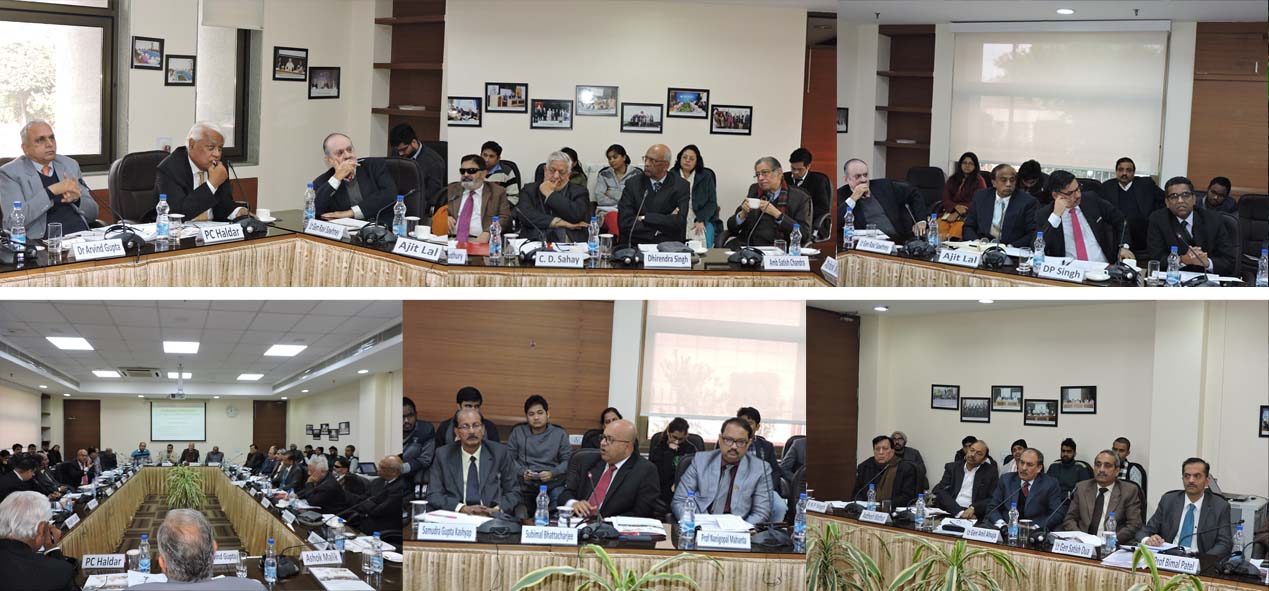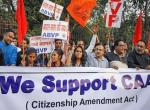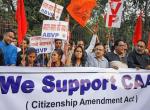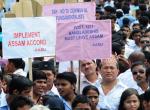It gives me great pleasure to welcome you to this seminar on ‘The Challenges of Migration’ that India has been facing for a long time.
Challenge of Illegal Migration
The main dimensions of the challenge are well-known. Tens of millions of illegal migrants have come to India and changed the demographic profile of several areas of the country, particularly in the North-East. Many of them have acquired access to citizenship documents through illegal means and are even participating in the electoral process. Their presence has created serious tensions at the local level. Undoubtedly, migration poses a great risk to national security. A comprehensive approach is required to deal with that problem.
Persecution of Minorities in Afghanistan, Bangladesh, and Pakistan
Yet, not all migrations are alike. The reasons for migration vary from bad economic conditions, and conflict situations to ethnic genocides and religious persecution. Economic migrants impose heavy burden on local resources and their number are also extremely large. Dealing with economic migration requires a very different kind of approach from that of dealing with other kind of migration.
There is incontrovertible evidence of minorities fleeing Afghanistan, Bangladesh, and Pakistan to India to escape persecution. In these countries these minorities are treated as second-class citizens. A feeling of insecurity prevails as is evident in numerous reports of the burning of religious places, destruction of property, and harassment of women. The share of minorities in the overall population in Afghanistan, Bangladesh and Pakistan has reduced to insignificant numbers since 1947. In Bangladesh, the share has come down from 28 percent in 1971 to about 8 percent now. Only a few hundred Sikhs out of two lakhs are left in Afghanistan. The share of Hindus in Pakistan has come down to less than 2 percent. Many of them have fled to India. Under the present Indian legal dispensation, such migrants are treated as illegal migrants.
Though India is a secular country, it cannot be oblivious of the reality of religious persecution of minorities in these countries, and the impact it has on India. Further, India has had a long tradition of receiving refugees who fled persecution in their countries. Tibetans’ exodus to India in the fifties is an example. Tamils from Sri Lanka also came to India in large numbers escaping civil war like condition in their country.
Illegal Migrants and the ‘Citizenship Amendment Bill’
In 2015, the Government decided to amend the rules under the Passport Act in which Hindus, Sikhs, Buddhists, Jains, Parsees and Christians from Afghanistan, Bangladesh and Pakistan, who have come to India fleeing religious prosecution, would not be treated as illegal migrants. In 2016, it introduced a Citizenship Amendment Bill (CAB) which amends the appropriate section of Citizenship Act of 1955 and provides that persons belonging to minority communities (Hindus, Sikhs, Buddhists, Jains, Parsees, and Christians) from Afghanistan, Bangladesh and Pakistan shall not be treated as illegal migrants, and that they would be eligible to apply for India’s citizenship provided they have lived in India for not less than 6 years.
The Logic of CAB
It is necessary to understand the motivation behind this Act. The proposed concession is guided by humanitarian considerations and not religious consideration. CAB covers six religious minorities and not just the Hindus. Therefore, it will not be correct to say that it is Hindu centric.
CAB has been discussed in the media. An impression has been created that it is against the Muslims and violates Article 14 the right to equality envisaged in the constitution. In its judgments, the SC has stated clearly that “the equality under Article 14 is not indiscriminate … the concept of equality permits rational or discriminating discrimination. Conferment of special benefits or protection or rights to a particular group of citizens for rationale reasons is envisaged under Article 14 and is implicit in the content of equality”.
CAB is applicable to the entire country. The people who are granted citizenship can be settled all over the country. The load of resettlement will not fall on one state. The government can make suitable rules in this regard.
CAB is not against the Assam Accord, as is being made out. The National Register of Citizen (NRC) provides protection to the indigenous community from illegal migrants. The Government has decided to constitute a panel to suggest measures for implementing Clause 6 of the Assam Accord. This is a positive and important step. It will re-assure those who are arguing that CAB dilutes the Assam Accord.
It has also been argued by some that the CAB will lead to the domination of Bengali speaking people. The fact is that most of the Hindu Bengali people are settled in the Barak Valley of Assam, where Bengali has been declared the second state language. Hindu Bengalis are living in the isolated pocket in Brahmaputra Valley. The real threat to Assamese people comes from Bengali Muslims and not from Bengali Hindus. Over the years, a degree of assimilation between such Hindus and Assamese has taken place.
CAB addresses a specific problem and provides a specific solution. It cannot address the illegal migration problem in entirety. It is an enabling provision for a certain section of illegal migrants facilitating their acquisition of citizenship keeping in mind their unique circumstances.
While there is a logic behind the CAB it is nevertheless a sensitive issue that needs to be handled carefully and objectively. A broad consensus should be built around it. Care should be taken to avoid identity-based conflict in the country.
India has had a long history of receiving refugees from different countries on different grounds. The Government needs to formulate a comprehensive refugee policy to deal with the problem.
Welcome Remarks Delivered by Dr Arvind Gupta at Seminar on ‘Challenges of Migration’ held on 7th January 2019 at the Vivekananda International Foundation in the backdrop of Citizenship Amendment Bill 2016 and its Implications.











Post new comment